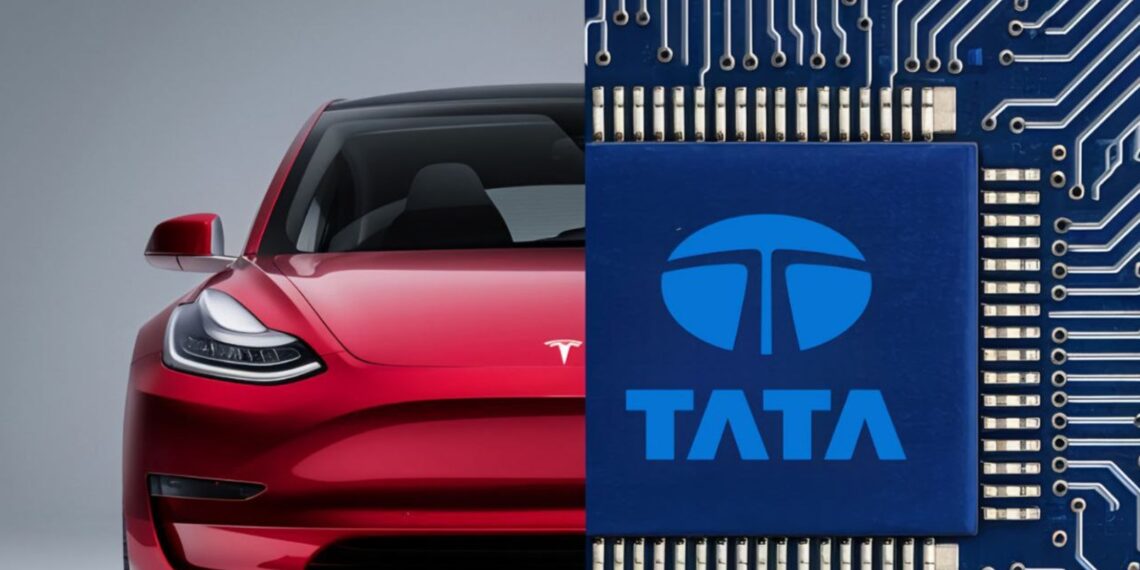In a strategic move to bolster its global operations, Tesla is reported to have inked a deal with Tata Electronics to secure semiconductor chips.
The agreement, signed quietly a few months ago, shines a spotlight on Tata Electronics as a reliable supplier for major global clients seeking a crucial component of their semiconductor setup in India.
While neither Tesla nor Tata Electronics has confirmed the deal, specifics such as its value remain undisclosed, a national business daily reported on Monday.
This partnership gains significance amidst Tesla’s keen interest in India, renowned as the world’s fastest-growing major car market.
The development hints at the electric carmaker’s burgeoning focus on the Indian market.
Tesla proprietor Elon Musk is slated to visit India later this month to meet with Prime Minister Narendra Modi, fuelling anticipation that Musk might unveil plans for potential investments in India, including ventures into electric vehicles (EVs).
ALSO READ Tesla eyes India entry with $2-3 billion investment in EV plant; team to scout site this month
Ashok Chandak, head of India Electronics and Semiconductor Association (IESA), told the business daily about Tesla’s move to engage local suppliers for electronics and subsystems signals diversification beyond reliance on a single market.
He underscored the need to fortify the supply chain, particularly in enhancing local semiconductor sources.
Experts estimate Tesla could inject at least $2-3 billion into India to manufacture electric cars, gaining momentum in the burgeoning local market.
Recent policy revisions have facilitated easier imports of EVs valued at $35,000 or above, subject to a reduced import duty of 15%.
However, carmakers must commit to investing $500 million within three years to commence local production.
Tesla may initially target high-end electric models tailored with premium features for the Indian market.
Additionally, Tata Electronics has ramped up its chip business by recruiting 50-60 top experts from abroad in recent months.
In the wake of the pandemic, Tesla has been diversifying its parts sourcing beyond China, manufacturing certain components in-house while procuring others from global suppliers.















